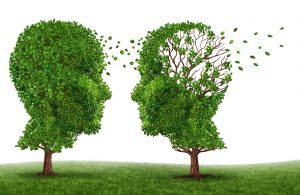The causes of stress, our reactions to them, and even our susceptibility to stress are unique to each of us. Our ability to react to such stressors is what is often termed as emotional strength.
According to the Director of Yale Stress Center, Rata Sinha, who is also lead author in a study published in the Proceedings of National Academy of Science Journal, we all have different responses to stress, with some people appearing to be more persevering than others.
There have been debates on whether the emotional sensitivity is pre-determined, conditioned over time, based on one’s personality, or the situation in which they live and work. While we tend to associate emotional strength with someone who is also cold, stoic and unemotional, there is evidence that emotionally stability or strength actually may be in the genes.
There are three main parts of the brain– the upper, middle and lower brain, each with its own specific functions. The middle brain or mesencephalon has been associated with the ability to reason properly and rationally and associated with emotional strength.
Further research into gene-environment interactions has shed light on the possibility of genes being responsible the highly sensitive nature of certain individuals. According to an article in Psychology Today, neuroscientist researchers from the University of British Columbia and Cornell University successfully associated the gene variation responsible for the generation of the neurotransmitter Norepinephrine, ‘ADRA2b’ as being responsible for people with more heightened sensitivity to their environment. This gene variation causes heightened activity in certain regions of the brain, which leads to highly intense emotional responses when viewing either very positive or highly negative images.
In a related study by Rachel Grazioplene and her colleagues, the cholinergic system was determined to predictably track learning in certain environments. This study led to a conclusion that children of same socioeconomic backgrounds, in the same location, regardless of gender or age, reacted to certain situations based on their history of abuse. The children who had suffered abuse while growing up inadvertently learned to react with anxious and fearful responses as opposed to calmer, more open reactions by the non-abused companions.
Thus, while some people have better emotional control than others because of genetics, the impact of environmental factors cannot be overlooked.

Recent Comments